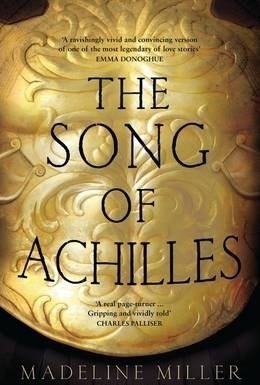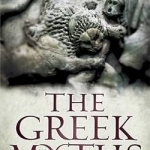
The Greek Myths: The Complete and Definitive Edition
Book
The Greek Myths is the definitive and comprehensive edition of Robert Graves's classic imaginative...
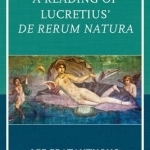
A Reading of Lucretius' De Rerum Natura
Book
Lucretius' philosophical epic De Rerum Natura (On the Nature of Things) is a lengthy didactic and...
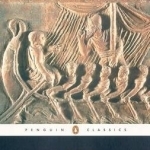
The Odyssey
Homer, E.V. Rieu, Peter Jones and Dominic Rieu
Book
Homer's The Odyssey is an epic that has endured for thousands of years, and this Penguin Classics...
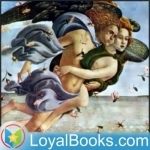
Myths and Legends of Ancient Greece and Rome by E.M. Berens
Podcast
Silver footed, fair haired Thetis, Ares the God of War, Nike the Goddess of Victory, The Furies and...
Gareth von Kallenbach (980 KP) rated Mr. Peabody & Sherman (2014) in Movies
Aug 6, 2019
1950s-1960s legendary kids cartoon "The Rocky and Bullwinkle Show." Mr.
Peabody (Ty Burell), a Nobel prize winning brainiac canine, whose
intelligence is beyond that of any human being; there is nothing this
Beagle cannot do. He was able to put his brilliant mind to use and adopt
a young boy named Sherman (Max Charles) and he also invents a time
travelling machine he calls the WABAC (pronounced way-back). He uses the
WABAC as a teaching tool by travelling back in time with Sherman to
experience some of the most famous moments in history.
On Sherman's first day school, he finds that some of the history lessons
being taught in school were not accurate to how the events actually took
place. Remember, he traveled in time and witnessed it all first hand.
Sherman finds himself clashing with his classmate Penny (Ariel Winter),
who spends most of her time teasing and bullying Sherman for 'knowing too
much' and for being raised by a dog. In an attempt to bring peace among
Sherman's classmates and to also avoid the impending threat from child
services who would like nothing more than to prove that a dog does not have
the right to raise human child, Mr. Peabody invites Penny and her parents
over to their home for dinner. Sherman tries to impress Penny by breaking
Mr. Peabody's rules and introduces Penny to the WABAC. Nothing good comes
of two kids travelling in time and disrupting the space time continuum.
Enter Mr. Peabody, who uses the WABAC to try and rectify the disruptions
that were caused by Penny and Sherman's adventure through time.
This movie is not the story of "man's best friend!" It is geared more
towards the father-son relationship. A very likeable film that brings us
back to some significant moments in history, such as Leonardo DaVinci's
painting of the Mona Lisa, the Trojan War, the time when King Tut ruled
Ancient Egypt, and the French Revolution. In true Dreamwork fashion, there
was just the perfect of amount of humor for kids and adults alike to
enjoy. What sets this movie apart from others is its ability to embrace
education as an adventure and how it challenges the 'traditional' family
stereotype and that love can be found in all creatures and at any time.
4 out of 5 stars.
Ivana A. | Diary of Difference (1171 KP) rated The Song of Achilles in Books
Jul 19, 2018
The Song Of Achilles became a part of my TBR list right after I finished reading Circe. I loved Circe and it is one of my favorite books of 2018. I also enjoyed The Song of Achilles, but not nearly as much.
For the ones out there who love greek mythology, this is a book that covers Achilles’s life told from Patroclus’s point of view. It is more or less accurate, and covers a lot of details from the early lives of these two princes. This is a story about one great friendship that turns into something more, a lot of challenges, a lot of doubts, and a lot of choices to be made during a time of war.
The story is very fast paced, and I was skipping through the pages as fast as Achilles was killing Trojan warriors. From their childhood, to their growing up, to their adventures and the war, this book will never keep you calm, because every chapter something unexpected happens. Well, sometimes not too much, as I know the story, but even still, I was surprised a lot.
A thing that bothered me a lot throughout the whole book was the inaccuracy at some points, and hiding information.
Now, we all know that Achilles was immortal. And we all know the story that his mother Thetis, a goddess of water dipped his body into the water in the river Styx. However, she was holding him by the heel, so his heel was the only place where he was vulnerable. This will be the reason of his death, when Apollo would direct Paris’s spear into Achilles’ heel.
Now - if this is such a common fact, and everybody who heard about Achilles knows it - why wouldn’t the author include it in the book. It wasn’t mentioned once.. Not once… I found this really upsetting.
Moving forward to the characters, we have Patroclus presented as the weaker one, the coward, the person that is mocked by everyone, not loved even by his parents and unworthy. ( Another point that bothered me is that this is not entirely true - according to Homer, Patroclus was apparently wiser than Achilles)
On the other hand, we have the opposite - a wise, brave, strong and handsome man, loved by everyone, immortal and a son of a goddess. We have a perfect example for a leader.
While fate connect these two to meet from their very early years, they also build a love relationship which they try to hide it at first. This relationship will cause them hatred from Thetis (Achilles’ mom) and will prompt them to make choices that might not be necessarily good ones. Now, Homer never mentioned a pederasty in his works between these two, but Miller does. And I am not sure how I feel about it. Not about the fact that they are gay, but the fact that this is Achilles.
All in all, I enjoyed this book. It is a great retelling of the story and a great time capture of the past. It wasn’t anything special, and I didn’t feel heartbroken in the end, but it was definitely worth reading it. I give it three stars - ★★★.
3 likes
Ivana A. | Diary of Difference (1171 KP) rated The Song of Achilles in Books
Aug 21, 2018
<img src="https://gipostcards.files.wordpress.com/2018/07/book-review1.png"/>;
The Song Of Achilles became a part of my TBR list right after I finished reading Circe. I loved Circe and it is one of my favorite books of 2018. I also enjoyed The Song of Achilles, but not nearly as much.
For the ones out there who love greek mythology, this is a book that covers Achilles’s life told from Patroclus’s point of view. It is more or less accurate, and covers a lot of details from the early lives of these two princes. This is a story about one great friendship that turns into something more, a lot of challenges, a lot of doubts, and a lot of choices to be made during a time of war.
The story is very fast paced, and I was skipping through the pages as fast as Achilles was killing Trojan warriors. From their childhood, to their growing up, to their adventures and the war, this book will never keep you calm, because every chapter something unexpected happens. Well, sometimes not too much, as I know the story, but even still, I was surprised a lot.
<img src="https://gipostcards.files.wordpress.com/2018/07/book-cover.png"/>;
<b><i>A thing that bothered me a lot throughout the whole book was the inaccuracy at some points, and hiding information. </i></B>
Now, we all know that Achilles was immortal. And we all know the story that his mother Thetis, a goddess of water dipped his body into the water in the river Styx. However, she was holding him by the heel, so his heel was the only place where he was vulnerable. This will be the reason of his death, when Apollo would direct Paris’s spear into Achilles’ heel.
Now - if this is such a common fact, and everybody who heard about Achilles knows it - why wouldn’t the author include it in the book. <b>It wasn’t mentioned once.. Not once… I found this really upsetting. </b>
Moving forward to the characters, we have Patroclus presented as the weaker one, the coward, the person that is mocked by everyone, not loved even by his parents and unworthy. ( Another point that bothered me is that this is not entirely true - according to Homer, Patroclus was apparently wiser than Achilles)
On the other hand, we have the opposite - a wise, brave, strong and handsome man, loved by everyone, immortal and a son of a goddess. We have a perfect example for a leader.
While fate connect these two to meet from their very early years, they also build a love relationship which they try to hide it at first. This relationship will cause them hatred from Thetis (Achilles’ mom) and will prompt them to make choices that might not be necessarily good ones. Now, Homer never mentioned a pederasty in his works between these two, but Miller does. And I am not sure how I feel about it. Not about the fact that they are gay, but the fact that this is Achilles.
All in all, I enjoyed this book. It is a great retelling of the story and a great time capture of the past. It wasn’t anything special, and I didn’t feel heartbroken in the end, but it was definitely worth reading it. I give it three stars - ★★★.
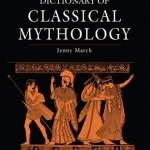
Dictionary of Classical Mythology
Book
Jenny March's acclaimed Dictionary of Classical Mythology, first published in 1998 but long out of...
ArecRain (8 KP) rated Goddess of Yesterday in Books
Jan 18, 2018
There are so many thing that I love about this book that I dont know if I can even fit it all into one review. I normally do not like narratives, but I think this novel wouldnt have been the same if it hadnt been. When it first starts, the main character, Anaxandra, is only 5 years old and , thus, narrates through the eyes of a five year old (who knows how to express herself very well ). As the story progresses and Anaxandra grows older, the way she thinks and talks also evolves. You almost feel as if you grow with her, learning the things that she does and experiencing what she does with such clarity.
From page one, the plot unfolds, another thing I adore about any book. There is no excessive detail or long drawn out explanations of anything. Cooney wastes no time with excessive writing when she can sufficiently say it in a few sentences. Something I thought was very realistic considering the narrator. It almost reads like a stream on consciousness. It isnt staccato and rough like Hemingways writing, reading smoothing while still sounding like what is going through a young girl's mind during the time.
The plot actually wasnt too complicated. A young girl is given to a king as a companion for his daughter. Their village is sacked when she is older and she lies to Menalaus to save herself and thus becomes a companion for his young daughter. Helen meets Paris, and the rest is history. It sounds simple enough, but every page had something on it that progressed the storyline. It seemed that something was always happening.
Cooney's Helen of Troy had me clutching my book firmly in my claws, trying not to through it across the room in rage. I always picture Helen of Troy as a narcisstic woman who should have been put in her place. Cooney portrayed just that: a woman so caught in her own supposed birthright, beauty, and self bestowed power that, at time, Helen acted as if she was a goddess herself. She had accepted her life but was bored with it. It wasn't until someone as equally gorgeous and captivating as her came along, Paris, did she gain the courage to finally defy her husband.
I equally agreed with Cooney's portrayal of Paris. The young prince, who was also known to be quite the stud of his time, just bragged about his conquests and skills, of which, in truth, he had none.
What is not to love about two people wrapped up in themselves actually falling in love with each other? I wondered if they were only in love with the idea of them having a mate that compared to their unsurpassable looks.
All in all, there were far to many things in this novel that made me place it back on my shelf instead of donating it once I had finished. It lacks a certain maturity that I had grown use to from the other novels I have been reading as of late, but considering it is a young adult novel, I think Cooney can be forgiven for such a triviality.
If you like fiction about ancient Greece and Greek Mythology, I whole-heartedly recommend this little gem.
The story is narrated by one of the 50 mytholgical mermaids, Sirena. She lives with ten of her sisters on an island where they are protected and guided by three guardian birds. The sole purpose of Sirenas and her sisters existence is to somehow make human males fall in love them so that the mermaids can become immortal like their ancestors. They live simple lives, dressing up in starfish and pearls and singing to lure ships towards their island where their ship will wreck on the reef just offshore. What makes Sirena different than her sisters, however, is her conscience. Whereas her sisters are only concerned with becoming immortal, Sirena actually cares about the welfare of the men whose lives they put in danger.
When the story begins, Sirena is preening herself before singing to lure not one, but three ships to her sisters island. The men on the ships fall under their spell and two of the three ships crash upon the reef. Most of the men die because they do not know how to swim. While the ones who know how to swim make it safely to shore, the mermaids try to save as many of the others as they can. Only eleven men initially survive. They eventually die because of lack of resources on the island, but not before they beat one of Sirenas sisters, Cecilia, to death for trying to save a drowning sailor.
Shortly after, Sirena runs away to the island of Lemnos to escape the life she has been subjected to. There, she tries to help heal Philoctetes who has been bitten by a serpent sent by Hera. From there, their relationship blossoms and they come to love each other despite their differences, including Sirenas newly acquired immortality. Eventually however, Odysseus comes to obtain Hercules bow and arrows from Philoctetes so that the Greeks can win the Trojan War. The book ends with Philoctetes leaving with Odysseus, leaving Sirena on the deserted island of Lemnos.
This book completely crushed my heart. All in all, the book was actually pretty graphic for what I thought was an independent reader novel. Whenever Cecilia is killed by the sailors, Napoli gruesomely describes the mermaids smashed in face. Sirena makes multiple references to their beautiful breasts. While Napoli had enough decently to leave out any sex scenes, it is blatantly alluded to.
The majority of the novel is Sirena and Philoctetes bonding and building their relationship. Napoli takes us through the two learning about each other, bantering playfully, and falling in love. Only to rip them apart. It was so anticlimactic and soul-crushing, I almost started crashing.
All in all, it was a great novel. Despite being written in first person, it was expertly written. I love the simplicity of Sirenas thinking. It is clear that she lacks any education beyond her island world. Reading about Sirena and Philoctetes developing relationship was enchanting.
Definitely worth the heart break at the end.

